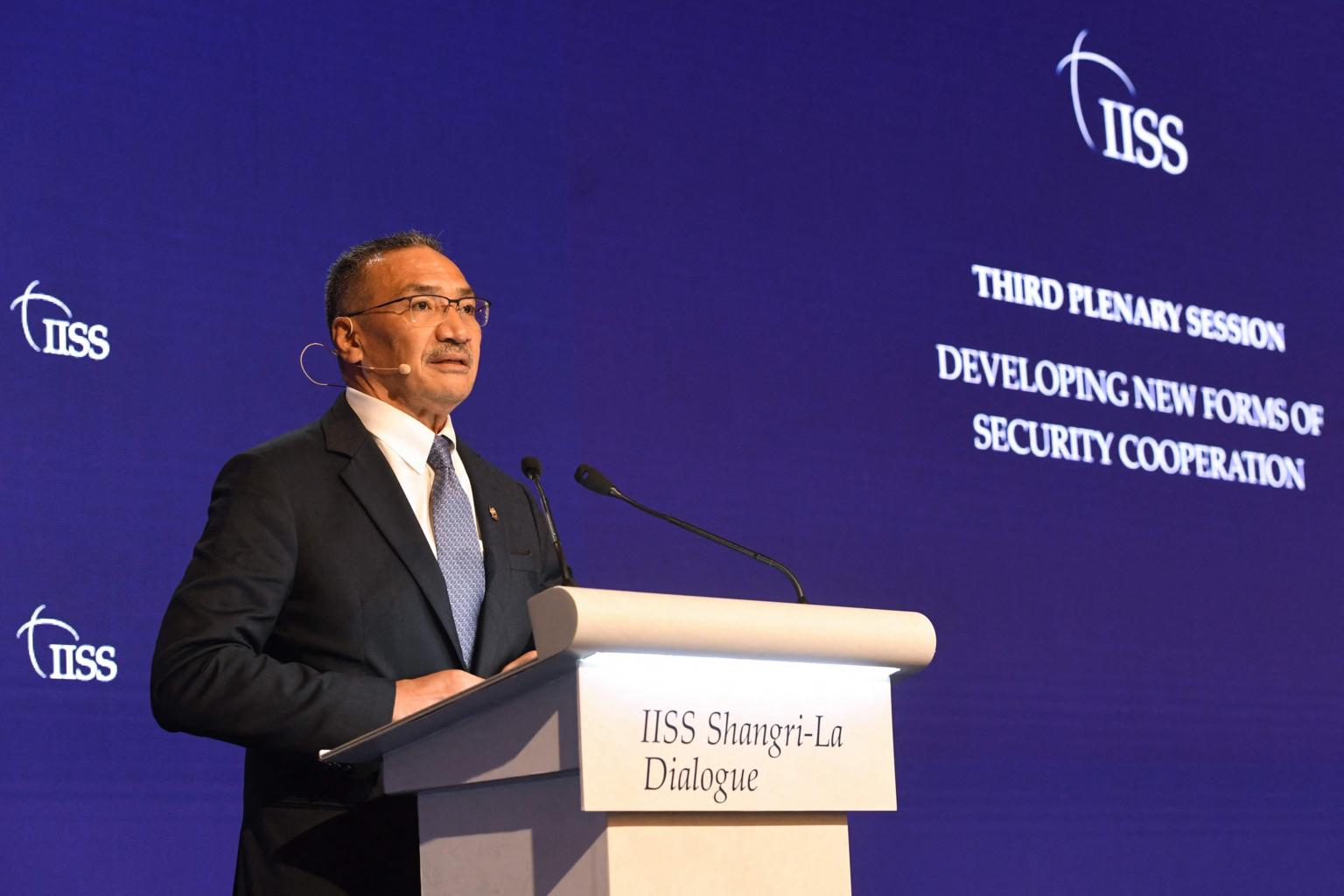Malaysia cites surging food inflation as global security threat
Sign up now: Get insights on the biggest stories in Malaysia

Senior Minister of Defence Hishammuddin Hussein said current security threats are no longer confined to political factors, but instead involved economic considerations.
PHOTO: AFP
SINGAPORE - Malaysia on Saturday (June 11) raised soaring food prices as a security concern, pointing to political instability in several nations as a warning to the rest of the region facing the threat of inflation.
Speaking at Asia's top security summit, the Shangri-La Dialogue, in Singapore, Senior Minister of Defence Hishammuddin Hussein said current security threats are no longer confined to political factors, but instead involve economic considerations.
"Food insecurity threatened societies and exacerbates conflicts and no country is immune to this," he said at a plenary session titled Developing New Forms of Security Cooperation.
Other speakers at the session were Australia's Deputy Prime Minister and Defence Minister Richard Marles, and Qatar's Deputy Prime Minister and Minister of State for Defence Affairs Khalid bin Mohammad Al Attiyah.
Datuk Seri Hishammuddin said the Covid-19 pandemic has already seen supply chain disruptions globally, where national lockdowns impeded the flow of food supplies and raw goods.
The Ukraine-Russia conflict, he said, has worsened the situation, with surging prices of commodities and food reaching levels not seen since the 2007- 2008 price spikes.
"The combination of unhappiness from two years of the pandemic and rising food prices may push our people over the edge, generating a wave of political instability, with potential riots and protests affecting the security environments in our nations," he said, pointing to the unrest in Sri Lanka and the double-digit inflation in Pakistan that contributed to the recent change of government as examples.
However, he said, the worst may be yet to come. The war in Ukraine and international sanctions against Russia are expected to spur further price increases in the coming months.
"The conflict is in Europe, but the implications - and damage - is global," he warned.
Australia's Mr Marles, meanwhile, touched on Australia-China relations, which have soured over the past two years under the previous Conservative government.
Under the new Labor government, Australia's approach to China will be "steady and consistent", looking for avenues of cooperation while recognising Beijing's growing power and the manner in which that is reshaping the region, he said.
"China is not going anywhere, and we all need to live together and hopefully prosper together. China's economic success is connected to that of our own and the region," Mr Marles said.
"Australia's approach will be anchored in a resolve to safeguard our national interests, and our support for regional security and stability based on rules."
Mr Marles said there will be continuity to Australia's defensive policy with regard to the regional order. This includes a commitment to the Aukus security pact between Australia, the United Kingdom and the United States, which Mr Marles later stressed differs from the Nato defence and security alliance.
"Aukus is not a mini Nato," Mr Marles said during the question-and-answer session. "It is principally the sharing of joint development capacity and technology sharing between the UK, US and Australia. It is not an alliance in the same set of arrangement as Nato."
Separately, Qatar's Dr Khalid said that for security to be sustainable and resilient, it must be inclusive, "just like football".
"The shortcoming of one player must be covered by teammates if there is any hope for success," he said.
An equitable and inclusive form of global cooperation must be established as a path towards ensuring cohesion and peace, he added.


